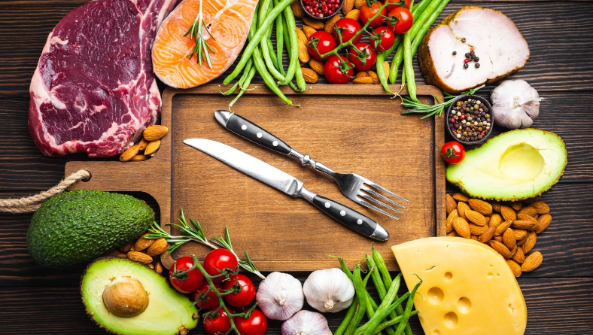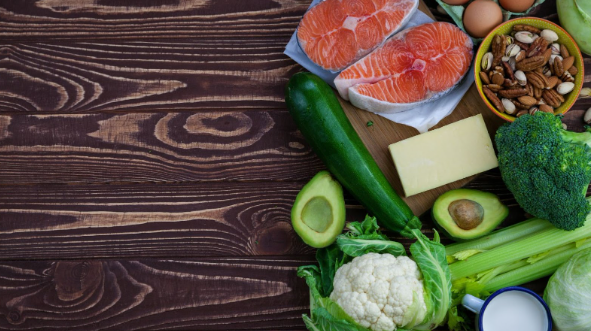
Is Quinoa Good for Keto Diet
Are you following a keto diet and wondering if quinoa is a good option? Well, let’s dive into the topic and find out. Quinoa, often touted as a superfood, has gained popularity in recent years due to its nutritional benefits. However, when it comes to the keto diet, things can get a bit tricky.
Quinoa is known for being high in carbohydrates, which makes it less suitable for those following a strict low-carb diet like keto. In fact, just one cup of cooked quinoa contains around 40 grams of carbs! This can quickly add up and kick you out of ketosis – the metabolic state where your body burns fat for fuel instead of carbohydrates.
While quinoa does offer some protein and fiber content that could be beneficial for overall health, it may not align with the macronutrient ratios required on a ketogenic diet. The primary goal of keto is to keep carbohydrate intake low while increasing fat consumption. So if you’re looking to stay in ketosis and optimize your results on this diet plan, it’s best to choose lower-carb alternatives.
Benefits of Including Quinoa in a Keto Diet
When it comes to following a keto diet, the emphasis is often on consuming low-carb and high-fat foods. However, incorporating quinoa into your keto meal plan can offer some unique benefits. One of the main advantages of including quinoa is its improved nutritional profile.
Quinoa is considered a superfood due to its rich content of essential nutrients. It’s packed with protein, fiber, vitamins (such as B vitamins and vitamin E), and minerals like magnesium, iron, and zinc. These nutrients are crucial for maintaining overall health and supporting bodily functions.
In fact, quinoa stands out among other grains because it contains all nine essential amino acids that our bodies need but cannot produce on their own. This makes it a complete protein source—a valuable asset especially for those following a vegetarian or vegan keto lifestyle.
Enhanced Digestion and Gut Health
Another benefit of incorporating quinoa into your keto diet is its positive impact on digestion and gut health. Quinoa contains dietary fiber, which plays an important role in promoting healthy digestion by adding bulk to the stool and aiding regular bowel movements.
The fiber in quinoa also acts as a prebiotic—feeding the beneficial bacteria in our gut. A healthy gut microbiome contributes to improved nutrient absorption, reduced inflammation, strengthened immune function, and even enhanced mental well-being.
By including quinoa in your meals occasionally while following a keto diet, you can support your digestive system’s health and maintain optimal gut function.
Increased Energy Levels
Following a keto diet often leads to increased energy levels due to the body’s utilization of ketones as an alternative fuel source. However, some individuals may experience fluctuations or dips in energy during the initial adaptation phase or when engaging in intense physical activities.
Including quinoa in your ketogenic meal plan can help provide sustained energy throughout the day. With its complex carbohydrates that are digested slowly, quinoa can provide a steady release of glucose into the bloodstream, preventing sudden spikes and crashes in energy levels.
Alternative Low-Carb Grains for the Ketogenic Diet
When following a ketogenic diet, it’s important to find low-carb alternatives to grains that can fit into your meal plan. While quinoa may not be suitable due to its higher carbohydrate content, there are several other options that can provide you with the texture and taste you desire while keeping your carb intake in check. Here are some alternative low-carb grains that you can consider:
- Cauliflower Rice: Made by pulsing cauliflower florets in a food processor until they resemble rice grains, cauliflower rice is an excellent substitute for traditional rice. It’s low in carbs and calories, making it a popular choice for keto dieters. You can easily incorporate cauliflower rice into stir-fries, fried rice dishes, or even use it as a base for grain-free salads.
- Shirataki Rice: Shirataki rice is made from konjac flour and water and has virtually no calories or carbs. It has a unique texture but absorbs flavors well when cooked with sauces or spices. This grain substitute is perfect if you’re looking for a guilt-free way to enjoy your favorite rice-based dishes without compromising on your keto goals.
- Chia Seeds: Although technically not a grain, chia seeds are rich in fiber and omega-3 fatty acids, making them an excellent addition to any keto diet. They can be used as a thickening agent in puddings or added to smoothies and baked goods for extra nutrition.
Remember that portion control is key when incorporating these alternative low-carb grains into your ketogenic diet. While they offer lower carb options compared to traditional grains like quinoa, it’s still essential to monitor your overall carbohydrate intake to stay in ketosis.

